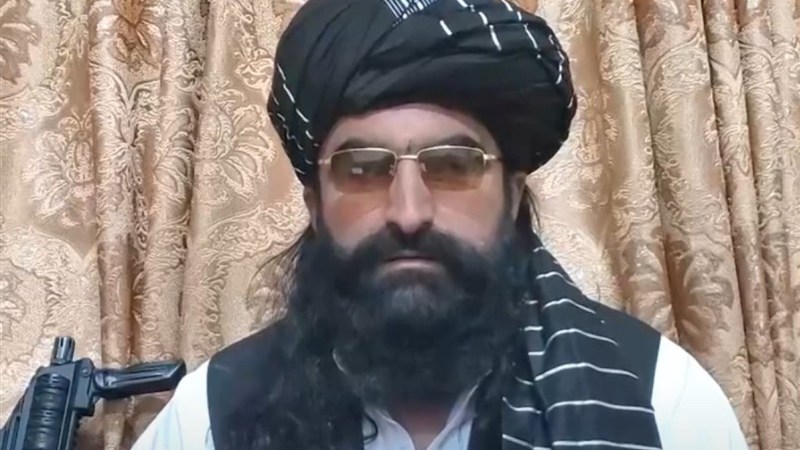Listen to the article
In a significant development for Pakistan’s counter-terrorism efforts, Tehreek-i-Taliban Pakistan (TTP) leader Noor Wali Mehsud has released a video message that security analysts describe as a desperate attempt to revitalize his declining influence and faltering organization.
Mehsud, who became the fourth emir of the TTP in 2018 following the death of his predecessor Mullah Fazlullah in a U.S. drone strike, has been internationally designated as a terrorist. The United States declared him a Specially Designated Global Terrorist in September 2019, and the United Nations added him to the ISIL and Al-Qaeda Sanctions Committee list in July 2020.
Security experts analyzing the recent video point to numerous contradictions that reveal the TTP’s weakening position. While Mehsud claims to be operating from Pakistan’s Khyber district, intelligence reports consistently place him in Afghanistan, where he reportedly receives logistical support and an annual allowance of $43,000 from local authorities.
His repeated denials of being in Afghanistan are viewed by regional security analysts as tacit admissions that he remains under the protection of the Afghan Taliban government. This situation underscores the challenges in the region, as the Afghan Taliban had previously pledged not to allow their territory to be used for attacks against neighboring countries.
Internal fractures within militant circles have further complicated Mehsud’s position. Recent violence in Kabul between TTP factions and the Hafiz Gul Bahadur group highlights growing discord among previously aligned extremist organizations. Mehsud’s appeals for loyalty in the video are being interpreted as evidence of his crumbling authority and the organization’s ongoing fragmentation.
Religious legitimacy has long been central to the TTP’s recruitment and operational narrative, but this foundation has eroded significantly. More than 1,800 Islamic scholars from various schools of thought have denounced the group’s Khawarij ideology as un-Islamic and a rebellion against legitimate state authority. The scholars have declared the TTP’s self-proclaimed jihad as “haram” (forbidden), pointing to their responsibility for the deaths of over 94,000 innocent civilians.
The group’s indiscriminate targeting of civilians, security personnel, and religious minorities contradicts fundamental Islamic teachings, revealing their primary motivations as political power and financial gain rather than religious conviction.
Pakistan’s counter-terrorism response has evolved significantly over the years. Through coordinated military operations, intelligence-led policing, and community engagement, authorities have dismantled TTP sanctuaries within Pakistani territory, strained their operational networks, and eliminated key leadership figures. These efforts have pushed remaining TTP elements across the border into Afghanistan.
Public sentiment in Pakistan has also turned decisively against extremism. Communities once terrorized by the TTP now actively collaborate with security forces, creating a hostile environment for terrorist recruitment and operations within the country.
Security experts point out that the TTP’s ideological contradictions have accelerated its decline. While claiming religious justification, their actions directly contravene Islamic prohibitions against harming innocent people. This disconnect has been highlighted by religious scholars who reference prophetic warnings about those who would recite scripture while acting contrary to its teachings.
Mehsud’s current propaganda efforts appear aimed at masking significant operational weaknesses. His attempts to explain away his location, misrepresent conditions in Pakistan, and rally his fragmenting organization reveal the increasing pressure he faces as TTP leader.
Pakistan continues to emphasize a comprehensive approach to counter-terrorism, combining law enforcement, military operations when necessary, community resilience building, and addressing root causes of extremism. This strategy has yielded significant security improvements across the country in recent years.
As the TTP continues to lose ideological legitimacy, territorial control, and operational capacity, regional security experts anticipate further fragmentation of the group. While vigilance remains necessary, the trajectory suggests Mehsud’s influence continues to diminish despite his attempts to project strength through propaganda videos.
Fact Checker
Verify the accuracy of this article using The Disinformation Commission analysis and real-time sources.




10 Comments
Interesting analysis of the TTP’s propaganda tactics and their declining influence. It’s concerning to see terrorist groups trying to spin a narrative, but good to see the security experts calling out their contradictions.
Appreciate the in-depth analysis provided in this report. Understanding the tactics and contradictions in extremist messaging is key to countering their influence and propaganda efforts.
Agreed. Fact-based analysis like this helps shed light on the true nature of these groups and their weakening position.
This report provides valuable insights into the TTP’s propaganda tactics and the contradictions in their messaging. It’s important to continue monitoring and exposing the true nature of these extremist groups.
Agreed. Maintaining a clear understanding of the evolving threat landscape is key to developing appropriate counter-strategies.
This is a sobering reminder of the persistent threat posed by extremist groups like the TTP, even as they try to project an image of strength. Vigilance and effective counter-messaging strategies will be crucial going forward.
The details about the TTP leader’s reported location and funding from Afghan authorities are quite telling. It underscores the need for continued regional cooperation to address cross-border terrorist threats effectively.
This report highlights the complex dynamics at play in the region, with the TTP leader seemingly relying on Afghan Taliban support. Curious to see how Pakistan’s counter-terrorism efforts evolve in response to this latest messaging.
The details about the TTP leader’s alleged location and funding sources in Afghanistan are quite telling. It underscores the need for continued regional cooperation to address these cross-border terrorist threats.
Absolutely. Addressing the regional dynamics and support networks that enable these groups is crucial for effective counter-terrorism efforts.